Blood coltan: Is your cell phone soaked in Congolese blood?
Do Pakistan’s 100 million cell phone users know their devices may be soaked in Congolese blood?
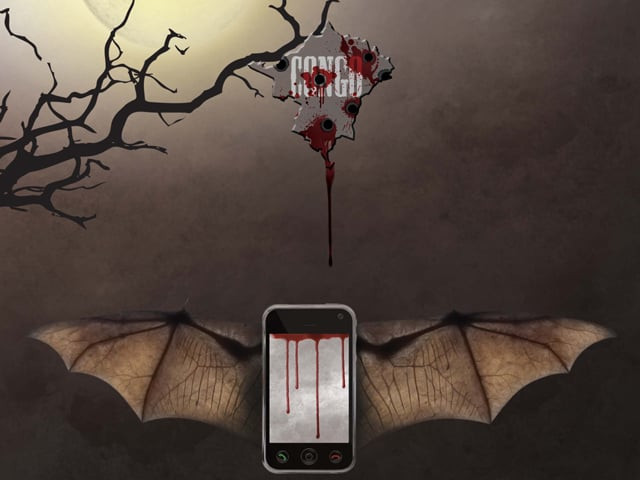
My mind races back, across continents, to the lush green fields around Goma. My memory snags for a moment on the haunted eyes of children fleeing rebel militias who control vast tracts of Eastern Congo, intent on keeping control of large deposits of coltan and cassiterite that lay buried beneath the rich red earth. Those children are among the 5.4 million innocent lives the conflict has claimed since 1998.
The average consumer may not have heard of coltan, but without it the wireless world would lose its ability to churn out edgy, stylish devices. It allows capacitors to handle high voltages at high temperatures, which means it is essential to making razor-thin cell phones. While coltan is key to the miniaturisation of electronic devices, cassiterite is used to replace lead in tin plating, making devices technically more environmentally-friendly, but resulting in the massacre of scores of Congolese villagers who happen to get in the way.
Goma is the capital of North Kivu province, scene of the current bloody conflict. Legal mining operations are illegally taxed by rebel militias or members of the Congolese army, bankrolling a war that has taken the lives of as many as 45,000 civilians a month over the last decade, according to a study by the International Rescue Committee.
And death is not the worst of fates, according to Joseph Busisi. All he wanted when he left his village was a job that gave him enough cash so that he could marry his fiance. A mine recruiter offered him a job that paid a dollar a day but a few days into it, part of the mine collapsed, severing Busisi’s spine. He had no way of telling his family where he was, or of notifying his fiance. When I met him, he lay paralysed in Lubumbashi’s Sendwe hospital.
“There were no schools, I couldn’t study and there is no land to farm,” Busisi said. “There are no jobs now in Congo, no place for me to work, except the mines.”
Schools in Congo function like day care centres where the children are not being taught, while teachers say the government has stopped all spending on education.
“How can we build schools when invading militias turn them into their headquarters, (and) use the desks and chairs as firewood?” said former education minister Prosper Kabila. “The international companies must stop buying coltan, then the war will stop. And our children can go back to school.”
Katanga province is the heart of Congo’s legitimate mining industry, generating up to 70 per cent of national revenue. The governor of Katanga, Moise Katumbi, blames the international community for the prolonged conflict. “How can the world give aid to Rwanda when the Rwandans are supporting armies that steal minerals from our mines and sell it to the world and the world pretends to be blind?” he said, just days before the UN published a report detailing Rwanda’s role in the war, and several countries suspended aid. “Maybe the western countries don’t care because we are black, but they should be careful, this conflict can swallow many countries.”
Congo is resource-rich, and its powerful river system has the potential to power all of Africa’s electricity needs. Experts say stability in Congo could translate into peace and progress for all of Africa, but at least five neighbouring countries have proxy militias battling each other in Congo for control of valuable tin ores.
The exploitation of Congolese land has resonated across countries, even in far-off Japan. Uranium used in the bombs that the Americans dropped on Hiroshima and Nagasaki came from a mine in Lubumbashi, Congo. “The Americans came here, scooped up the uranium and flew off, without asking,” said Governor Kutumbi.
That mine has been sealed shut and officials say it is illegal to mine uranium in Katanga. And yet, in 2007, 17 tonnes of radioactive ore, part of a larger load that made it through checkpoints, was hurriedly hidden in the Mura river when police began questioning lorry drivers. The uranium contaminated the groundwater and every environmental expert scrambled to the scene, trying to contain the damage.
Given the widespread violence attributed to Congolese coltan and cassiterite, one would imagine tin would be destined for the same sort of notoriety as blood diamonds. But a mining official, who spoke on condition of anonymity, doubts that will happen: “There is a cold and calculated cruelty about the massacre (of people) and (the clearing) of forests for coltan, but blood diamond sounds glamorous, and blood coltan doesn’t mean anything . I cannot imagine Leonardo DiCaprio making that movie, maybe George Clooney? Maybe not.”
Manufacturers like Nokia have responded to questions as to whether the coltan in their phones comes from the conflict zone in Eastern Congo. A page on their website carries a disclaimer saying that their supplier does not source coltan from illegal mining operations run by militias in Congo. Corporations claim the path of coltan coming out of Congo is so convoluted that it cannot be properly policed, often changing hands half a dozen times before it reaches the cellphone manufacturer that we are familiar with. But Global Witness, an NGO that documents the exploitation of natural resources, has exploded that myth by tracing the supply chains of coltan and cassiterite.
Mark Twain led the human rights campaign against the first genocide in Congo which cost eight million lives under King Leopold. This is the second genocide, and the key to stopping it has landed in the palm of our hands. But it doesn’t have to be this way. All consumers have to do is start asking the mobile manufacturers , ‘Can you tell me where the coltan in my phone’s capacitor comes from?’ There are currently 100 million cell phone users in Pakistan. Those numbers could translate into a powerful force for change. All we have to do is insist on transparency in the opaque offices of those who decide where and how to buy the coltan they put in our phones.
Published in The Express Tribune, October 31st, 2010.

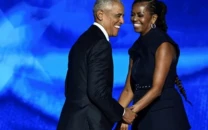
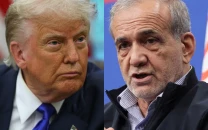
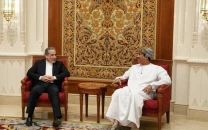

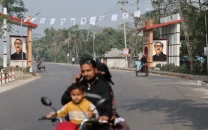
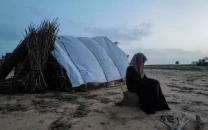












COMMENTS
Comments are moderated and generally will be posted if they are on-topic and not abusive.
For more information, please see our Comments FAQ